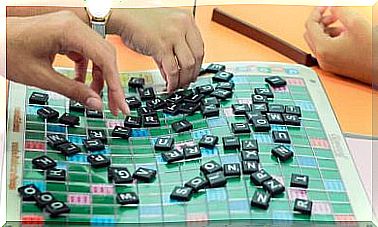Menstruation Changes In Teens

During the first few years after girls “become young girls”, as it is popularly said, there are usually certain imbalances in menstrual periods. This is because the body is getting used to this new condition. In this article we’ll tell you everything you need to know about menstruation changes in teenagers.
I have irregular periods: is it normal?
Irregular menstruation is one of the main reasons for consulting a gynecologist. In most cases it does not represent any particular illness or health problem.
Generally, the duration of menstruation is between 3 and 8 days, with an average of 5 days. The interval between each cycle is usually 28 days. That is, in theory. In fact, only 15% of adult women have regular cycles.
What is called irregular or abnormal menstruation? It is simply when it does not occur every 28 days or when it bleeds for a day or more than seven. Also when there are months when the woman has not menstruated or has more than one bleeding per month.
Irregular menstruation can be caused by anemia, hormonal problems, stress, excessive weight loss, eating disorders, postpartum or a more serious illness such as cervical cancer.
It can also be caused by organic damage, changes in the genital tract or endocrine disorders. In addition, there is the period before menopause, in which menstruation occurs at longer intervals.
In case of any doubt, it is necessary to consult the gynecologist. He will be able to carry out different tests and determine if the irregularity presents greater dangers or not. It is also an opportunity to ask about the amount of bleeding, which can be irregular even in a regular woman.
The amount of blood is considered abnormal when a woman needs more than 8 pads a day. In this case, it is necessary to pay extra attention, as the great loss of blood can cause anemia.

Are menstrual changes in teenagers frequent?
The answer is a big yes. It may be that a teenager’s period occurs every two months or twice in the same month. Or she may have amenorrhea (lack of bleeding) for several months without the possibility of pregnancy.
It can also happen that your period lasts for two days or a week. First menses are usually more than irregular. In most cases, cycles are normalized after the first or second year, although the irregularity may continue for life.
What influences the menstruation of teenagers?
Menstrual cycles in teenagers are influenced by growth and development in general. Therefore, irregularity is more common than we think.
Furthermore, we cannot ignore the fact that hormone levels at this stage are quite unstable and that this directly affects the periodicity and duration of menstruation. This variation even affects the amount of bleeding.
Other reasons why there are changes in menstruation in teenagers are related to their habits. There is no doubt that it is a stage of many changes and that it is sometimes accompanied by unhealthy habits.
For example, if your teenager exercises excessively, follows very strict diets, takes diet pills, uses drugs, or feels constantly pressured and stressed, she may also experience these changes in her menstrual periods.
Just as there is no rule about the age at which a girl first menstruates, it is also not possible to determine when irregular cycles will normalize or if they will.
It is estimated that up to 20 years of age a woman is irregular and that, at this stage, amenorrhea is completely normal. This is because the body and hormones are regulating themselves to allow a woman to be a mother.

In conclusion …
It is normal that during the first few years menstruation is quite irregular. So there’s nothing to worry about. However, to clear all doubts, it is always better to consult a gynecologist.
Pay more attention if accompanied by severe pain in the lower abdomen and back, weakness, nausea, headaches, fatigue, severe cramps, or excessive sweating.









